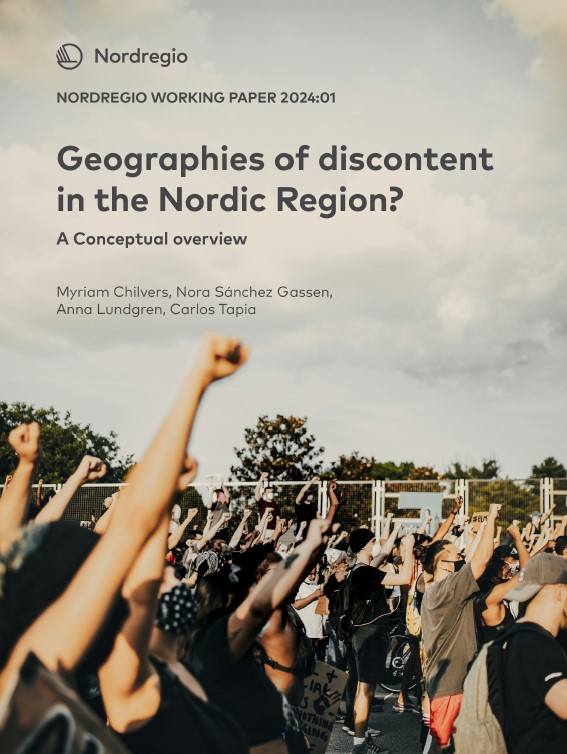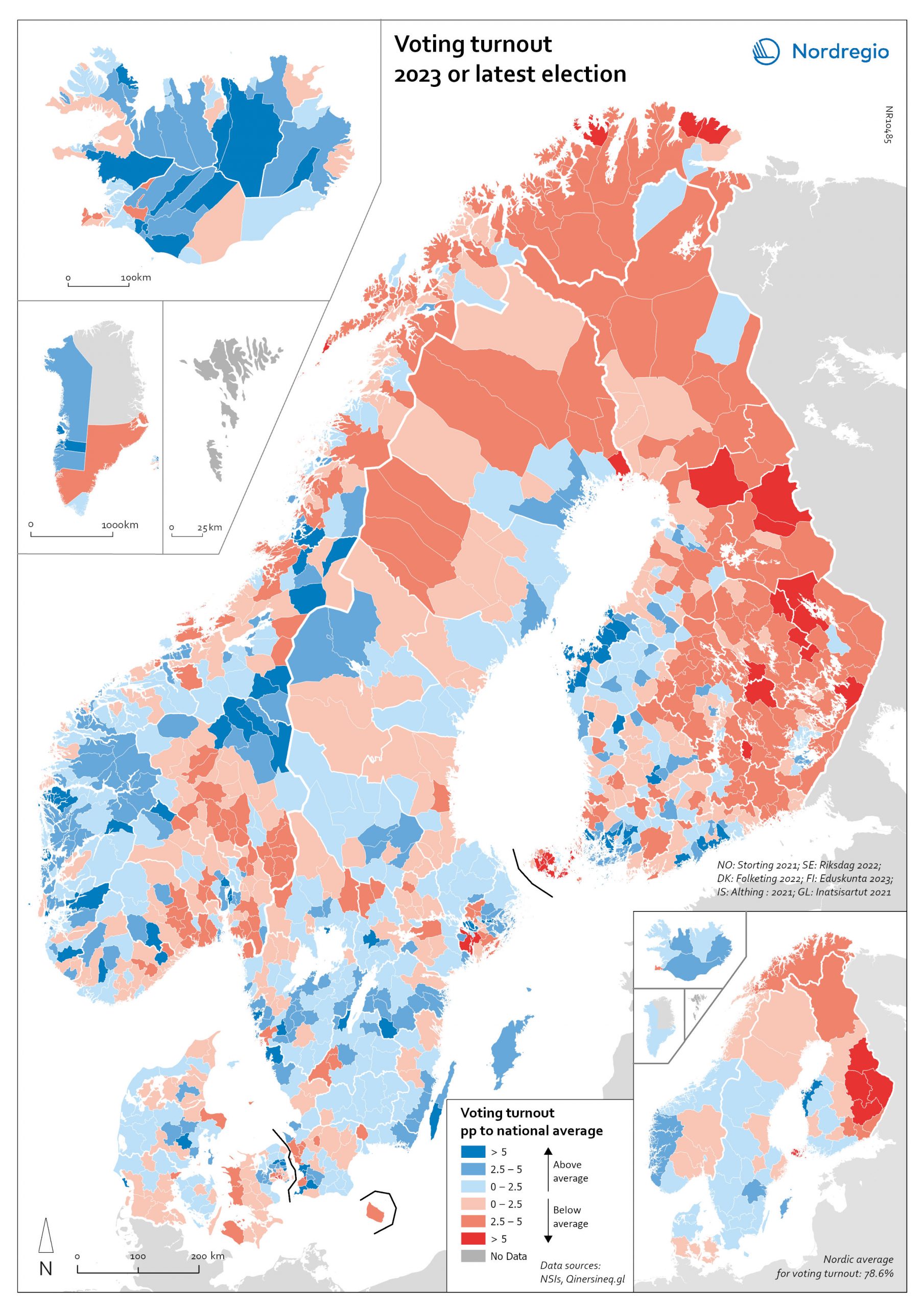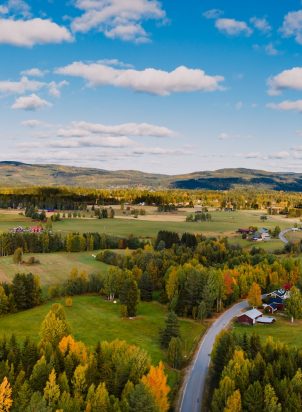The recent years have been marked by a rising sentiment of discontent, increasingly polarised political debates and shifting political attitudes and electoral behaviour across the Western liberal democracies. The Nordic countries have also seen their share of emerging political discontent, increasing urban-rural and periphery-centre divides, as well as economic, social, cultural, and demographic divergence that contribute towards forming geographies of discontent.
Nordregio’s new working paper titled “Geographies of discontent in the Nordic Region? A conceptual overview” offers insights into the factors and drivers behind geographies of discontent in the western liberal democracies and in the Nordic Region. It also points towards questions that remain to be answered.

Myriam Chilvers, Research Fellow at Nordregio and one of the authors, sums up some of the key questions as “Is political discontent driven by where you live, either in a remote rural area or a big city? And how can this discontent be measured in a transparent way? Which are the driving forces of political discontent?” and adds that while academics and political thinkers alike have long thought that the apparent voting divide between rural and urban areas may provide a hint on both questions, there is more to explore. “This paper has established some of the key economic, social, cultural or demographic factors that might be driving this phenomenon in a Nordic context”, she notes.

In addition to the working paper, Nordregio’s reseachers have mapped out and visualised the latest voting turnouts in the Nordics on a map, further showcasing the emerging geographies and patterns of electoral behaviour across the Nordic Region.
The working paper and the map have been published as a part of ‘Ensuring inclusive economic growth in the transition to a green economy (EnIGG)’ project. The work in the project continues until the end of 2024. Looking ahead, Carlos Tapia, Senior Research Fellow at Nordregio, explains: “The next step will be to look deeper into whether geographies of discontent have appeared in the Nordics, and develop an empirical model to quantify the influence of the various factors fuelling discontent”. More results will follow in the upcoming months.
| About ‘Ensuring inclusive economic growth in the transition to a green economy (EnIGG)’ project The project analyses how the Nordic countries can accelerate the green transition towards a climate-neutral economy. It explores the issue from different perspectives and contributes to the discussion on how to restart the Nordic economies and accelerate the green transition towards a climate-neutral economy while ensuring that these processes are inclusive. |








